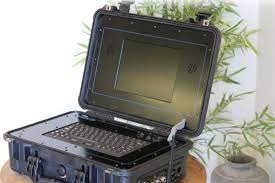
IMSI Catcher Is Used For Tracking Location Information of Mobile Phone Users and To Intercept Wireless Communication
What is an IMSI Catcher? An International Mobile Subscriber Identity (IMSI) catcher, in the simplest of terms, is a device used to intercept wireless communication by capturing and transmitting information at specified frequency channels. The interceptor is used for tracking location information of mobile phone users and to intercept wireless communication.
Some people are concerned about these IMSI catchers and their role in protecting private information of people. The fear is not entirely misplaced, as the practice of spying on cell phones is already illegal in the U.S. and several other countries. However, the practice of capturing, deciphering and monitoring wireless communications conducted over other networks is not necessarily illegal.
The use of an IMSI catcher to track and monitor mobile phone use has been around for a long time. In the early days of cellular telephony, it was almost impractical to own and operate such a device due to the cost and complex technical requirements. However, advances in technology have made it possible to obtain information about specific phones and even carrier brands. These carriers can be controlled by a parent company that owns the entire network.
The use of IMSI catchers is easy to justify based on current legal practices. The use of tracking devices to intercept wireless phone use facilitates law enforcement authorities and other officials to address illegal activities or conduct covert surveillance. It is also commonly used in hospitals to monitor patient medical records and more recently in banks to prevent financial fraud. The system does not interfere with a user's normal use of a mobile phone and does not violate the user's privacy. Its use however still raises questions as to whether the law authorizing use of the system is itself illegal.
The IMSI catcher system operates by transmitting sensitive information such as a person's name, address and other identifying information in the clear. This information is then secretly gathered by the parent company, which monitors the transmission. Once the information is collected, it can be used by the company for a variety of purposes. Most companies use the information they collect to contact the user and remind them that their phone is being monitored. For example, if a bank wants to find out if a particular customer is engaging in any suspicious activity, they might set up a trap, then send a text message to the customer. If the user ignores the text or doesn't take notice of the phone call, the company will know that the user has ignored the phone call.
In cases where parents want to keep track of their teenagers, this technology can help. For instance, if a parent wants to monitor their teenager's cell phone use, installing IMSI catcher on the phone could allow the parent to find out who the phone is registered to and how much they are spending. This can in turn help the parent to make sure that their child is not receiving money they don't actually spend. Monitoring one's own phone use is likely a violation of the users right to privacy, but in this case the monitoring company has a legal responsibility to the parent.
Although the use of IMSI catchers is legal according to the United States and the United Kingdom's laws, this may not necessarily be so in other countries. Some countries have harsher laws regarding privacy invasion, so it may be illegal to install such a system on a home phone. Also, many countries have made it illegal to spy on IMSI catchers themselves, which means that any company using such a tracking program could run into serious legal trouble. The best way to be safe is to always check with local law enforcement before you install such a system. But in some countries, parents need to be informed about the ins and outs of the tracking software.
Hi Akanksha, i was interested by your comment in your article - IMSI catchers is legal according to the United States and the United Kingdom's laws... i would have thought IMSI Catchers fell into 'The Interception of Communications Act 1985' ? Be interested to hear your thoughts